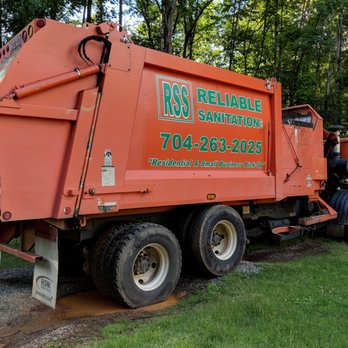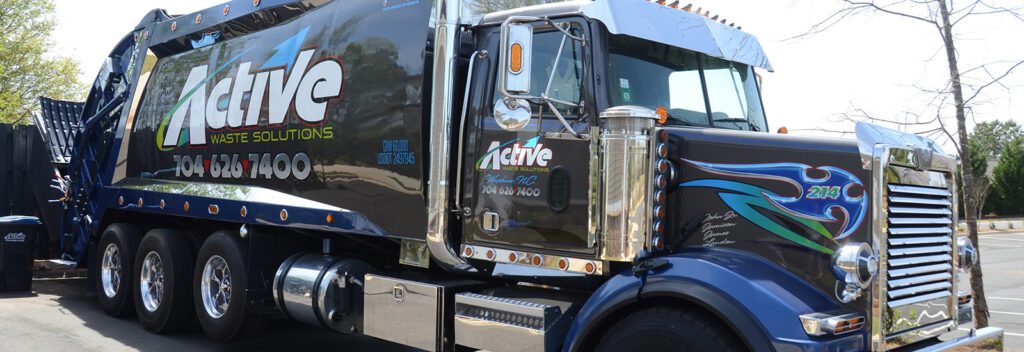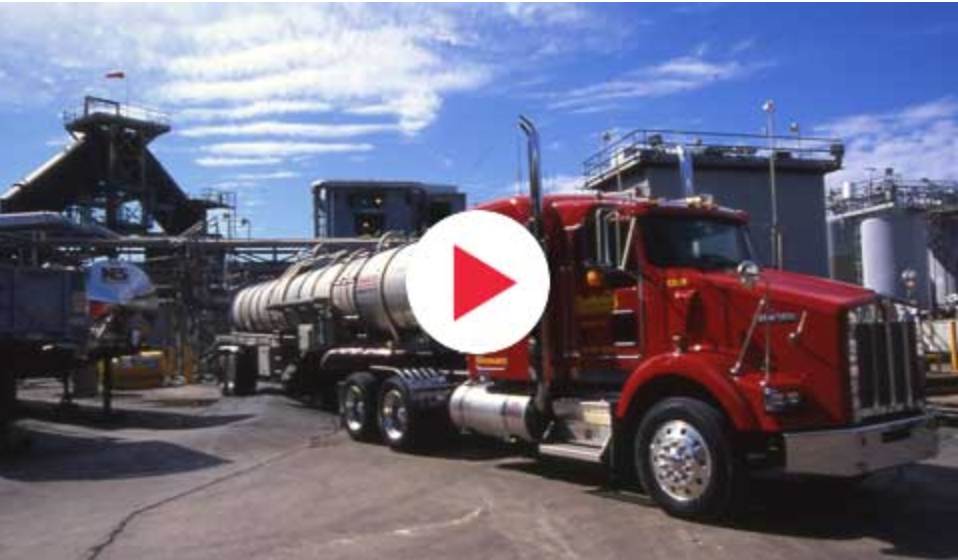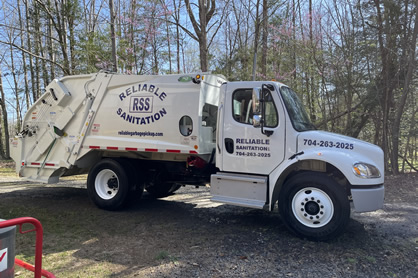In need of reliable waste removal services? Look no further than NC: Expert Services. With their unparalleled expertise and commitment to customer satisfaction, NC is your go-to solution for all your waste removal needs. From residential to commercial waste, NC provides efficient and reliable services that you can trust. Say goodbye to the hassle of waste management and let NC handle it for you. With NC: Expert Services, you can rest assured that your waste will be taken care of in a professional and responsible manner. Experience the difference today!

H2: Overview of Waste Removal Services
Waste removal services play a crucial role in maintaining a clean and safe environment. Proper waste management is essential for the health and well-being of our communities. In this article, we will explore the importance of proper waste removal, common types of waste materials, the environmental impact of improper waste removal, and the benefits of hiring expert waste removal services.
H3: Importance of Proper Waste Removal
Proper waste removal is not just about tidiness, but it also has significant implications for public health. When waste is left unmanaged, it can attract pests and rodents, leading to the spread of diseases. Additionally, certain types of waste, such as chemicals and biohazard materials, can pose serious health risks if not handled and disposed of correctly. By ensuring proper waste removal, we can create a safer and healthier environment for ourselves and future generations.
H3: Common Types of Waste Materials
Waste materials come in various forms, and it is important to understand the different types for effective waste management. Common types of waste materials include household waste (such as food scraps, packaging, and old furniture), commercial waste (generated by businesses and offices), hazardous waste (chemicals, batteries, and medical waste), and construction and demolition debris. Each type requires specific handling and disposal methods to prevent any adverse effects on the environment and human health.
H3: Environmental Impact of Improper Waste Removal
Improper waste removal can have severe consequences for the environment. When waste is not disposed of properly, it can contaminate soil, water sources, and the air we breathe. This contamination can harm ecosystems, wildlife, and even human beings. Chemicals and toxins from improperly disposed of hazardous waste can seep into groundwater, pollute rivers and streams, and affect marine life. Taking proper care of waste disposal is vital to protect the environment and preserve our natural resources.
H3: Benefits of Hiring Expert Waste Removal Services
Hiring expert waste removal services can provide numerous benefits to both individuals and businesses. These professionals have the knowledge, experience, and resources to handle waste disposal efficiently and in compliance with regulations. By entrusting waste removal to experts, you can save time and energy, focus on other important tasks, and ensure that waste is managed responsibly. Moreover, professional waste removal services contribute to a cleaner environment, lower environmental impact, and improved overall public health.
H2: Understanding NC Waste Removal Regulations
In North Carolina, waste management is governed by specific regulations and laws to ensure proper waste disposal and protect the environment. It is essential to understand these regulations to avoid penalties and non-compliance issues.
H3: Overview of North Carolina Waste Management Laws
The North Carolina Department of Environmental Quality (NCDEQ) is responsible for implementing and enforcing waste management regulations in the state. These laws outline the requirements for waste generators, transporters, and disposal facilities. They cover various aspects, including waste classification, storage, transportation, and proper disposal methods. Compliance with these laws is essential to maintain a clean and safe environment.
H3: Specific Regulations for Different Types of Waste
North Carolina waste management laws have specific regulations tailored to different types of waste. For example, hazardous waste, such as chemicals and medical waste, must be handled and disposed of using specific protocols to prevent harm to human health and the environment. Construction and demolition debris also need to follow designated guidelines to ensure safe disposal. By understanding the regulations specific to the type of waste, you can ensure compliance and proper waste removal.
H3: Compliance and Penalties for Non-Compliance
Non-compliance with waste management regulations can result in severe penalties and fines. The NCDEQ conducts regular inspections and enforces penalties to maintain waste management standards. It is crucial to adhere to the regulations and keep updated on any changes in the law to avoid legal issues and penalties. Hiring expert waste removal services ensures compliance with these regulations, as they are well-versed in the laws and requirements.
H2: Different Types of Waste Removal Services Offered in NC
In North Carolina, various waste removal services are available to meet the diverse needs of individuals, businesses, and industries. Understanding the different types of waste removal services can help you choose the most suitable option.
H3: Residential Waste Removal
Residential waste removal services cater to the waste disposal needs of households. These services typically include regular waste collection, curbside pickup, and recycling services. By subscribing to a residential waste removal service, you can ensure that your household waste is collected and disposed of properly, minimizing the impact on the environment.
H3: Commercial Waste Removal
Commercial waste removal services are designed to handle waste generated by businesses, offices, and commercial establishments. These services often involve larger waste volumes and specialized disposal requirements. Expert waste removal companies can provide tailored solutions that meet the demands of different commercial sectors while complying with waste management regulations.
H3: Hazardous Waste Removal
Hazardous waste removal services focus on the safe and proper handling of hazardous materials. These materials require special precautions and adherence to regulations to prevent environmental contamination and health hazards. Expert waste removal companies have the necessary expertise, equipment, and knowledge to handle hazardous waste materials responsibly.
H3: Construction and Demolition Debris Removal
Construction and demolition projects generate substantial amounts of debris that need to be properly disposed of. Construction and demolition debris removal services handle the collection, transportation, and disposal of materials such as concrete, wood, metal, and other construction waste. Following proper waste removal practices during these projects helps maintain safety and sustainability.
H3: Recycling Services
Recycling plays a crucial role in waste management and environmental sustainability. Recycling services collect and process recyclable materials, such as paper, plastic, glass, and metal, to minimize waste sent to landfills. Recycling helps conserve natural resources, reduce energy consumption, and decrease greenhouse gas emissions. Many waste removal service providers offer recycling services, making it easier for individuals and businesses to contribute to a greener future.
H2: Finding the Right Waste Removal Service Provider
When it comes to waste removal, finding the right service provider is crucial for efficient and responsible waste management. Consider the following factors to help you choose the best waste removal company for your needs.
H3: Assessing Your Waste Removal Needs
Before selecting a waste removal service provider, assess your specific waste removal needs. Consider the volume and type of waste you generate, as well as any specialized requirements, such as hazardous waste disposal. This assessment will help you narrow down your options and find a waste removal company that offers services tailored to your needs.
H3: Researching Local Waste Removal Companies
Researching local waste removal companies is an essential step in finding the right service provider. Look for companies with a good reputation, experience in the industry, and positive customer feedback. Online directories, reviews, and recommendations from friends or colleagues can be valuable resources for finding reliable waste removal services in your area.
H3: Checking Company Licenses and Certifications
When considering waste removal service providers, it is crucial to verify their licenses and certifications. Ensure that the company holds appropriate licenses from the relevant authorities, such as the NCDEQ. Additionally, certifications or memberships in professional waste management organizations indicate a commitment to industry best practices and standards.
H3: Reading Customer Reviews and Testimonials
Reading customer reviews and testimonials can provide insights into the quality of service offered by waste removal companies. Reviews from previous customers give you a glimpse into the company’s reliability, responsiveness, and professionalism. Positive reviews and satisfied customers are indicators of a waste removal service provider you can trust.
H3: Getting Multiple Quotes and Comparing Prices
Obtaining multiple quotes from different waste removal companies allows you to compare prices, services, and additional offerings. Consider the overall value provided by the company, rather than solely focusing on the lowest price. Look for transparent pricing, where all costs and fees are clearly outlined, to avoid any surprises or hidden charges.
H3: Evaluating Customer Service and Responsiveness
Customer service and responsiveness are crucial factors to consider when choosing a waste removal service provider. A company that values customer satisfaction is more likely to provide efficient and timely waste removal services. Pay attention to how they handle inquiries, respond to requests, and their overall level of professionalism. Excellent customer service ensures a smooth and hassle-free waste removal experience.

H2: Factors to Consider in Waste Removal Service Selection
Selecting the right waste removal service provider involves assessing various factors that impact the quality and reliability of the service. Consider the following factors when making your decision.
H3: Experience and Expertise in Waste Removal
An experienced waste removal service provider will have the knowledge and expertise necessary to handle waste disposal properly. Look for companies with a proven track record in the industry, as their experience ensures they are familiar with the regulations, best practices, and challenges of waste removal.
H3: Availability of Equipment and Resources
The availability of proper equipment and resources is essential for efficient waste removal. Ensure that the waste removal service provider has the necessary vehicles, bins, and other equipment to handle your specific waste removal needs. Having the right resources ensures that waste is collected, transported, and disposed of safely and effectively.
H3: Compliance with Environmental Safety Standards
It is crucial to choose a waste removal service provider that prioritizes environmental safety and compliance with regulations. They should have protocols in place to minimize environmental impact during waste collection, transportation, and disposal. Make sure the company adheres to environmental safety standards and employs best practices for responsible waste management.
H3: Responsiveness to Emergency Waste Removal Needs
Emergencies can arise unexpectedly, requiring immediate waste removal services. Consider the availability and responsiveness of waste removal companies in case of emergencies. A reliable company will have the capacity to respond quickly and efficiently to urgent waste removal needs, ensuring minimal disruption and potential risks.
H3: Flexibility in Service Scheduling
Every client has unique waste removal requirements, and a flexible waste removal service provider can accommodate those needs. Whether you require frequent pickups or have irregular waste disposal needs, choose a company that offers flexible scheduling options. This flexibility ensures that waste removal services align with your specific requirements.
H3: Guarantee of Proper Waste Disposal and Recycling
A reputable waste removal service provider should have a clear and transparent process for waste disposal and recycling. They should provide documentation and proof of proper disposal methods, ensuring that waste is appropriately handled according to regulations. Additionally, they should prioritize recycling and have partnerships with recycling facilities to maximize the diversion of waste from landfills.
H3: Additional Services Offered (e.g., Junk Removal, Yard Waste)
Consider whether the waste removal service provider offers additional services that may be beneficial to you. Some companies offer services such as junk removal and yard waste disposal, which can simplify your waste management needs. Having a single provider for various waste removal services reduces the hassle of dealing with multiple companies.
H2: Process of Waste Removal Service
Understanding the waste removal process is essential to ensure that waste is handled responsibly. The typical waste removal process involves several stages.
H3: Initial Waste Assessment and Collection
The waste removal process begins with a waste assessment to determine the type and volume of waste. Waste removal professionals will assess your specific needs and develop a tailored waste management plan. Once the plan is established, waste collection services will be scheduled based on your requirements, whether it be regular pickups or on-demand services.
H3: Transportation and Transfer to Disposal Site
After waste collection, the waste removal company will transport the waste to an appropriate disposal site. This may involve loading waste into specialized trucks or containers for transportation. The waste removal service provider ensures that proper protocols are followed during transit to prevent any spills or contamination.
H3: Proper Disposal or Recycling of Waste Materials
Once the waste reaches the disposal site, it undergoes proper disposal or recycling, depending on the type of waste. Hazardous waste is disposed of following specific guidelines and regulations to minimize environmental and health risks. Recyclable materials are sent to recycling facilities where they are processed for reuse, reducing the demand for new raw materials.
H3: Documentation and Reporting
Documentation is a crucial step in the waste removal process. Waste removal service providers should maintain accurate records of waste collection, transportation, and disposal, including documentation required by regulatory agencies. These records not only demonstrate compliance but also provide transparency and accountability for waste management practices.

H2: Cost of Waste Removal Services
The cost of waste removal services can vary depending on multiple factors. Understanding these factors helps you budget for waste removal and make informed decisions.
H3: Factors Affecting Waste Removal Service Costs
Several factors contribute to the cost of waste removal services. These include the type and volume of waste, the frequency of pickups, the distance to the disposal site, and any additional services required. Hazardous waste disposal often incurs higher costs due to the specialized handling and disposal procedures involved. Understanding these factors allows you to anticipate and budget for waste removal costs accurately.
H3: Common Pricing Models
Waste removal service providers may employ various pricing models for their services. Some charge per pickup, while others offer subscription-based plans. Construction and demolition debris removal may involve different pricing structures based on the weight or volume of materials. It is important to understand the pricing model used by your waste removal service provider so that you can evaluate the cost-effectiveness of their services.
H3: Importance of Transparent Pricing
Transparent pricing is essential when selecting a waste removal service provider. Request a detailed breakdown of the costs involved in waste removal, including any additional fees or taxes. This transparency ensures that you have a clear understanding of the pricing structure and can accurately compare prices across different providers.
H3: Budgeting for Waste Removal Services
Budgeting for waste removal services is important for both residential and commercial clients. Factor in the recurring cost of waste removal services in your overall budget. Identify any specific waste removal needs that may require additional budget allocation, such as hazardous waste disposal or construction debris removal. By budgeting appropriately, you can ensure that waste removal remains a manageable expense.
H2: Benefits of Hiring Expert Waste Removal Services
Hiring expert waste removal services offers a range of benefits for individuals, businesses, and communities. These benefits extend beyond the simple disposal of waste.
H3: Efficient and Timely Waste Removal
Expert waste removal services guarantee efficient and timely waste removal. They have the knowledge, experience, and resources to handle waste collection and disposal effectively. By relying on professionals, you can avoid delays and ensure that waste is removed promptly, maintaining a clean and organized environment.
H3: Compliance with Waste Management Regulations
Expert waste removal service providers are well-versed in waste management regulations. They ensure compliance with these regulations, minimizing the risk of penalties and legal issues. By entrusting your waste removal needs to experts, you can have peace of mind knowing that waste disposal is being handled responsibly and in accordance with environmental safety standards.
H3: Lower Environmental Impact
Expert waste removal services prioritize responsible waste disposal and recycling, resulting in a lower environmental impact. They have the knowledge and resources to divert recyclable materials from landfills, reducing the strain on natural resources. By hiring professionals, you contribute to a greener future and help protect the environment.
H3: Proper Handling of Hazardous Materials
Hazardous waste requires specialized handling to ensure the safety of both people and the environment. Expert waste removal services are trained and equipped to handle hazardous materials. They follow strict protocols and disposal methods to prevent harm and minimize the risk of pollution or contamination.
H3: Professional and Safe Waste Removal Process
When you hire expert waste removal services, you can expect a professional and safe waste removal process. These professionals have the necessary training and equipment to handle waste efficiently and safely. They prioritize safety, reduce the risk of accidents or injuries, and ensure that waste is disposed of responsibly.
H3: Freeing up Time and Resources for Other Tasks
Managing waste can be time-consuming and distract from other important tasks. By outsourcing waste removal to professionals, you can free up time and resources. This allows you to focus on your core responsibilities and areas of expertise, leaving waste management in capable hands.
H2: Tips for Responsible Waste Management
Responsible waste management is a collective effort that requires attention from individuals, businesses, and communities. Here are some tips to promote responsible waste management:
H3: Reduce, Reuse, and Recycle
Adopt the mantra of “reduce, reuse, and recycle” in your daily life. Reduce waste generation by consuming consciously and avoiding unnecessary packaging. Reuse items whenever possible to prolong their lifespan. Lastly, prioritize recycling by sorting recyclable materials and ensuring they are placed in the appropriate recycling bins.
H3: Proper Sorting and Segregation of Waste
Proper sorting and segregation of waste materials are essential for effective waste management. Educate yourself and others about waste categories and ensure that waste is sorted correctly. Separate recyclables, hazardous materials, and general waste to facilitate proper disposal and recycling.
H3: Educating and Training Employees on Waste Management
Businesses should provide training to their employees on proper waste management practices. Employees should be educated on waste sorting, recycling protocols, and the importance of responsible waste disposal. By promoting awareness and providing the necessary knowledge, businesses can create a culture of responsible waste management within their organizations.
H3: Implementing Sustainable Waste Reduction Practices
Implementing sustainable waste reduction practices is key to responsible waste management. Encourage practices such as paperless operations, using reusable materials, and opting for eco-friendly alternatives. By reducing waste generation at the source, businesses and individuals can minimize their environmental footprint.
H3: Regular Waste Audits and Monitoring
Regular waste audits and monitoring help identify areas for improvement and ensure ongoing compliance with waste management regulations. Assess your waste generation patterns, disposal methods, and recycling rates to identify opportunities for optimization. Monitoring waste management practices allows for continuous improvement and greater efficiency.
H2: Conclusion
Reliable waste removal services are vital for maintaining a clean and safe environment for everyone. Proper waste removal ensures public health, reduces environmental impact, and promotes sustainability. By understanding waste removal regulations, exploring the different types of waste removal services, and considering important factors in service selection, individuals and businesses can make informed decisions for their waste management needs. Responsible waste management, with the help of expert waste removal services, ultimately contributes to a cleaner and safer environment for our communities.

